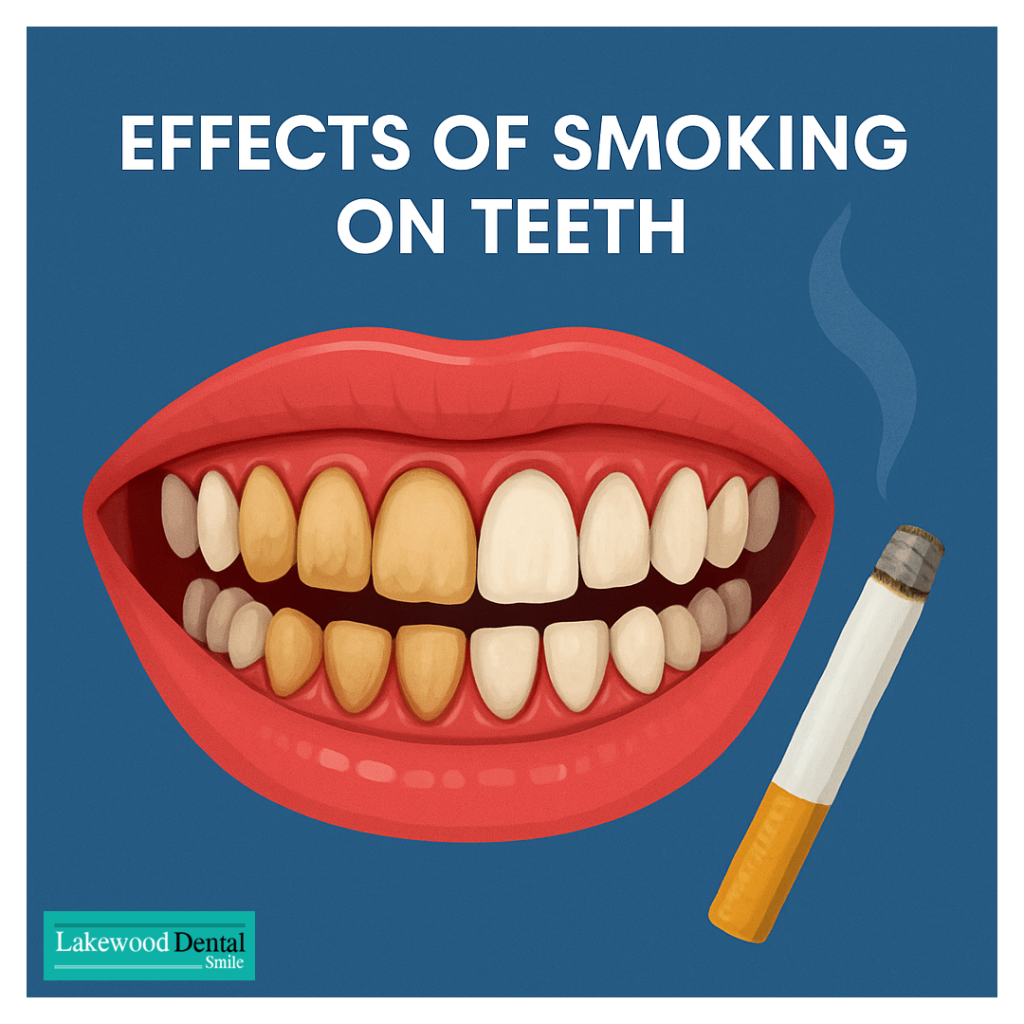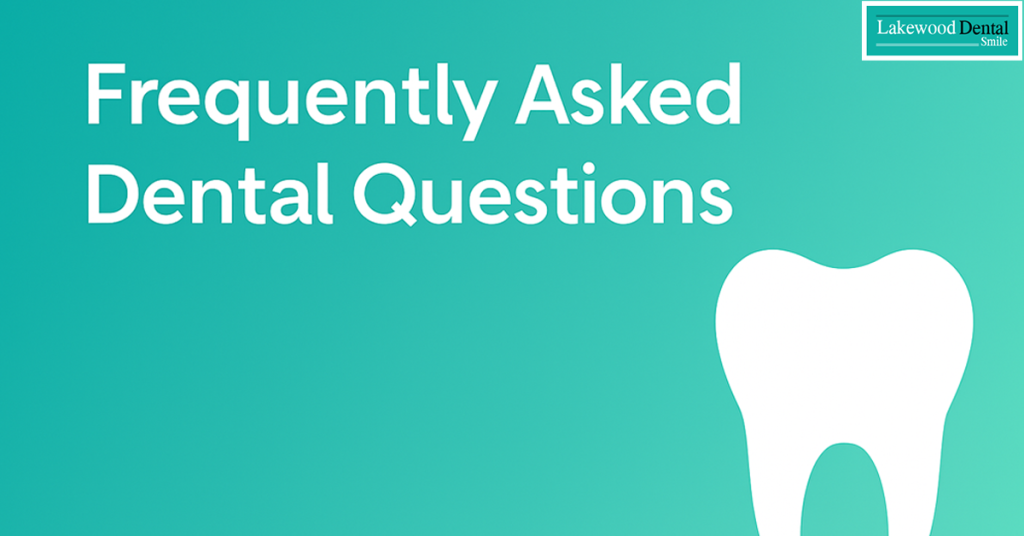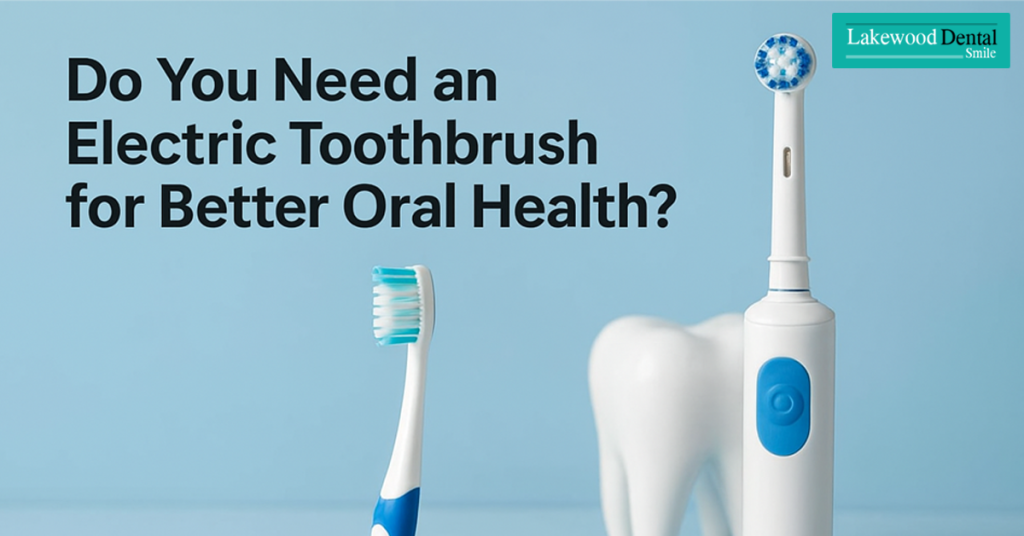Effects of smoking on teeth are far-reaching and often overlooked. While most people understand the general health risks of smoking, many are unaware of the serious dental consequences it can cause. From stained teeth to gum disease and even oral cancer, smoking directly affects your oral health and overall confidence. Understanding these effects is the first step toward taking control of your smile.

Why Smoking Damages Your Teeth
Smoking introduces harmful chemicals into your mouth, including nicotine and tar. These substances damage the enamel and soft tissues, creating multiple dental problems. Some of the most common issues include:
- Stained teeth: Tar and nicotine from cigarettes leave yellow or brown discoloration on enamel.
- Persistent bad breath: Smoking contributes to smoker’s breath, which cannot be fixed by brushing alone.
- Weakened immune response: Smoking slows healing and increases susceptibility to infections, including gum disease.
Knowing the effects of smoking on teeth helps you understand why quitting is essential for long-term oral health.
Gum Disease and Tooth Loss
Smoking is a significant risk factor for gum disease, which affects the tissues and bone supporting your teeth. Key consequences include:
- Reduced blood flow: Smoking restricts circulation to the gums, delaying healing.
- Inflammation and infection: Chronic exposure to tobacco irritates gums and promotes bacterial growth.
- Tooth loss: Advanced gum disease can destroy bone and tissue, eventually leading to teeth falling out.
Regular dental visits are crucial to monitor and manage gum health, particularly for smokers.
If left untreated, gum disease can destroy bone and supporting structures around teeth, eventually leading to tooth loss. Regular dental check-ups combined with smoking cessation can help prevent these outcomes.
Increased Risk of Oral Cancer
The effects of smoking on teeth extend to a higher likelihood of oral cancer. Tobacco chemicals damage soft tissues, increasing cancer risk over time. Early detection is critical, and dental professionals can spot warning signs during routine checkups. Symptoms may include persistent sores, unusual lumps, or bleeding in the mouth.
How Dentists Can Help
Your dental team plays a crucial role in addressing the effects of smoking on teeth. Dentists can:
- Ask about tobacco use during consultations
- Review medical history and provide personalized advice
- Educate and motivate patients about quitting
- Monitor oral health and detect early signs of damage
- Frequent dental visits provide an excellent opportunity to assess the effects of smoking on teeth and implement a prevention or treatment plan.
Frequent dental checkups allow for early detection of issues caused by smoking and offer guidance to minimize damage.
Steps You Can Take to Protect Your Teeth
While quitting smoking is the most effective way to prevent damage, you can take additional steps to preserve oral health:
- Professional cleanings: Dentists can remove plaque and surface stains caused by tobacco.
- Proper oral hygiene: Brush twice daily, floss, and use antiseptic mouthwash.
- Healthy diet: Eat foods rich in calcium and vitamins to strengthen teeth and gums.
- Hydration and lifestyle: Drink water regularly, reduce alcohol intake, and maintain a balanced lifestyle.
Implementing these practices helps reduce the negative impact of smoking while you work on quitting.
Cosmetic Solutions for Smokers
If discoloration or damage has already occurred, cosmetic treatments can restore your smile:
- Teeth whitening: Removes surface stains and brightens your smile.
- Restorative treatments: Fillings, crowns, or implants can repair damage caused by decay or tooth loss.
- Gum therapy: Treatments can restore gum health and reduce inflammation.
Understanding the effects of smoking on teeth helps guide the appropriate cosmetic or restorative treatment.
Conclusion: Prioritize Oral Health Today
Smoking has profound negative effects on your teeth, gums, and overall oral health. From staining and bad breath to gum disease and increased risk of oral cancer, the consequences are significant.
Visiting a dentist regularly, maintaining proper oral hygiene, and quitting smoking are crucial steps to protect your smile. If you’re in Dearborn, Michigan, Lakewood Dental Smile offers expert guidance and comprehensive care to help patients achieve healthier teeth and gums — and a brighter, more confident smile.




